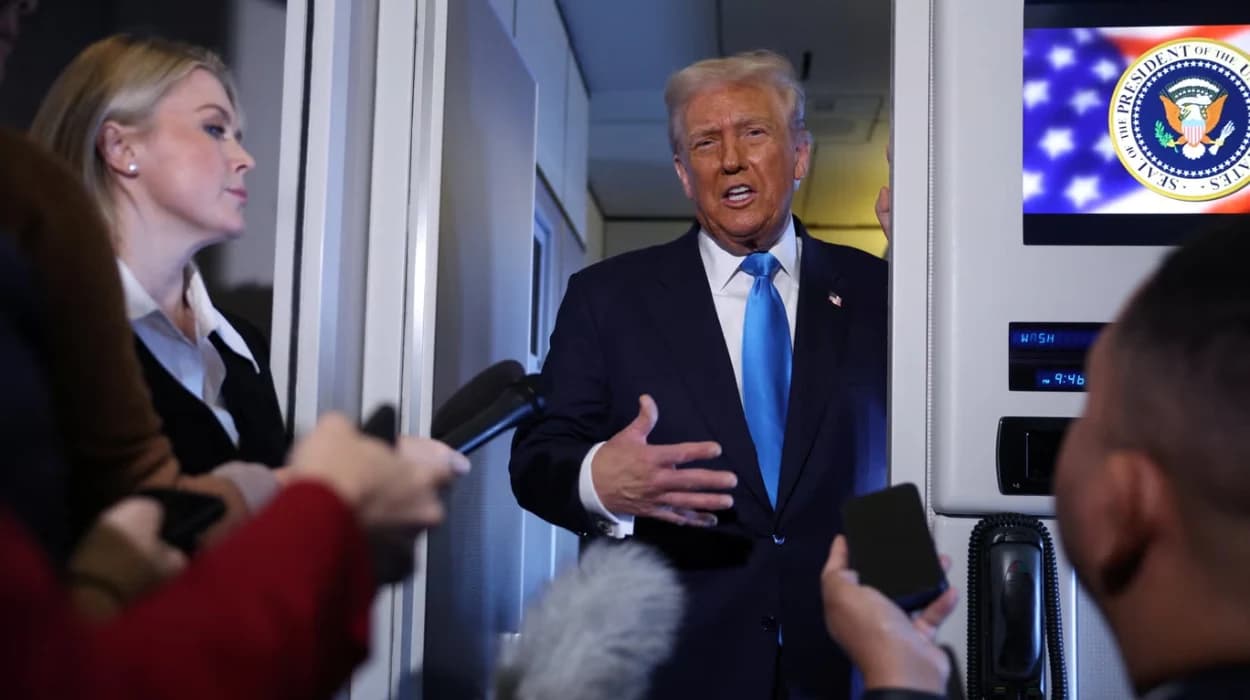Summary
- Trump lamented being barred from a third term by Constitution.
- Noted his highest poll numbers ever despite ineligibility.
- The 22nd Amendment restricts presidents to two elected terms.
A recent poll from YouGov and The Economist contradicts that claim, showing that the chairman's fashionability standing is only 39, with 58 of Americans disapproving of his job performance, giving him a net approval standing of-19.
According to YouGov, the result is the smallest of Trump's alternate term therefore far and lower than all but one of its past from his first term in the White House, which ran from 2017 to 2021.
The results are more unexpected when viewed by other factors, even while party lines still largely predict opinion regarding the president's term: 86 percent of Republicans support it and 97 percent of Democrats oppose it.
Additionally, there is a stark gender gap: only 32% of women are impressed with Trump's efforts in the White House since January, compared to 46% of males.
Additionally, only 11% of Black Americans and 29% of Hispanic Americans support his administration, making him extremely unpopular with ethnic minorities.
Additionally, the president receives low marks for how he handles particular topics. His work on immigration has received a net approval rating of -10. His work on revocation receives a score of-17, education receives a score of-19, jobs and the frugality admit a score of-22, climate change and the terrain admit a score of-31, and affectation and grocery prices admit a score of-31.
According to the check, 55 of American grown-ups oppose his trade onslaughts against Canada, only 25 support his obliteration of the White House's East Wing to construct an opulent chamber, only 16 were happy that he changed the captivity judgment of disgraced former Congressman George Santos, 8 would like to see him pardon Jeffrey Epstein abettor Ghislaine Maxwell, and 4 would like to see him pardon Sean" Diddy" Combs.
Additionally, according to the poll, 63 percent of respondents oppose his request for the Justice Department to pay him $230 million in restitution for their previous investigations of him.
CNN reports that Trump had his lowest- ever approval conditions when he left office in January 2021, lower than three weeks after his supporters besieged the U.S. Capitol. Quinnipiac (34 percent), CNN/ SSRS (34 percent), Gallup (34 percent), and the Pew Research Center (29 percent) all recorded swan dives in public opinion for the first chairman in American history to be impeached doubly.
His numbers have been slowly declining since he finished his incredible political comeback. In an ABC/Washington Post poll, Trump's favorability had already dropped to 39% when he marked his 100th day in April, compared to 41% on CNN, 44% on Fox News, and 45% on NBC and CBS.
According to a Reuters/Ipsos poll conducted earlier this month, the majority of Americans oppose Trump's more ambitious plan to deploy the Guard in other Democrat-run cities, with his overall support rating at 40%.
A Pew Research study conducted late last month revealed that a majority of respondents had negative opinions of Trump, Vice President JD Vance, Senate Majority Leader John Thune, and House Speaker Mike Johnson. This finding may be the most concerning for the Republican movement as a whole.
How does the 22nd Amendment explicitly limit presidential terms?
Still, or acted as President, for further than two times of a term to which another person was tagged, If a person has held the office of President. This means that if someone serves further than two times of a precursor's term, they may only be tagged formally subsequently.
The correction was ratified in 1951 following Franklin D. Roosevelt's four- term administration, which broke the former two- term tradition set by George Washington. It was designed to help any chairman from serving further than eight times, with an outside of 10 times in certain race scripts.
The textbook of the correction ensures an outside of two tagged terms and limits eligibility grounded on partial term service, thereby precluding indefinite re-election to the administration.

